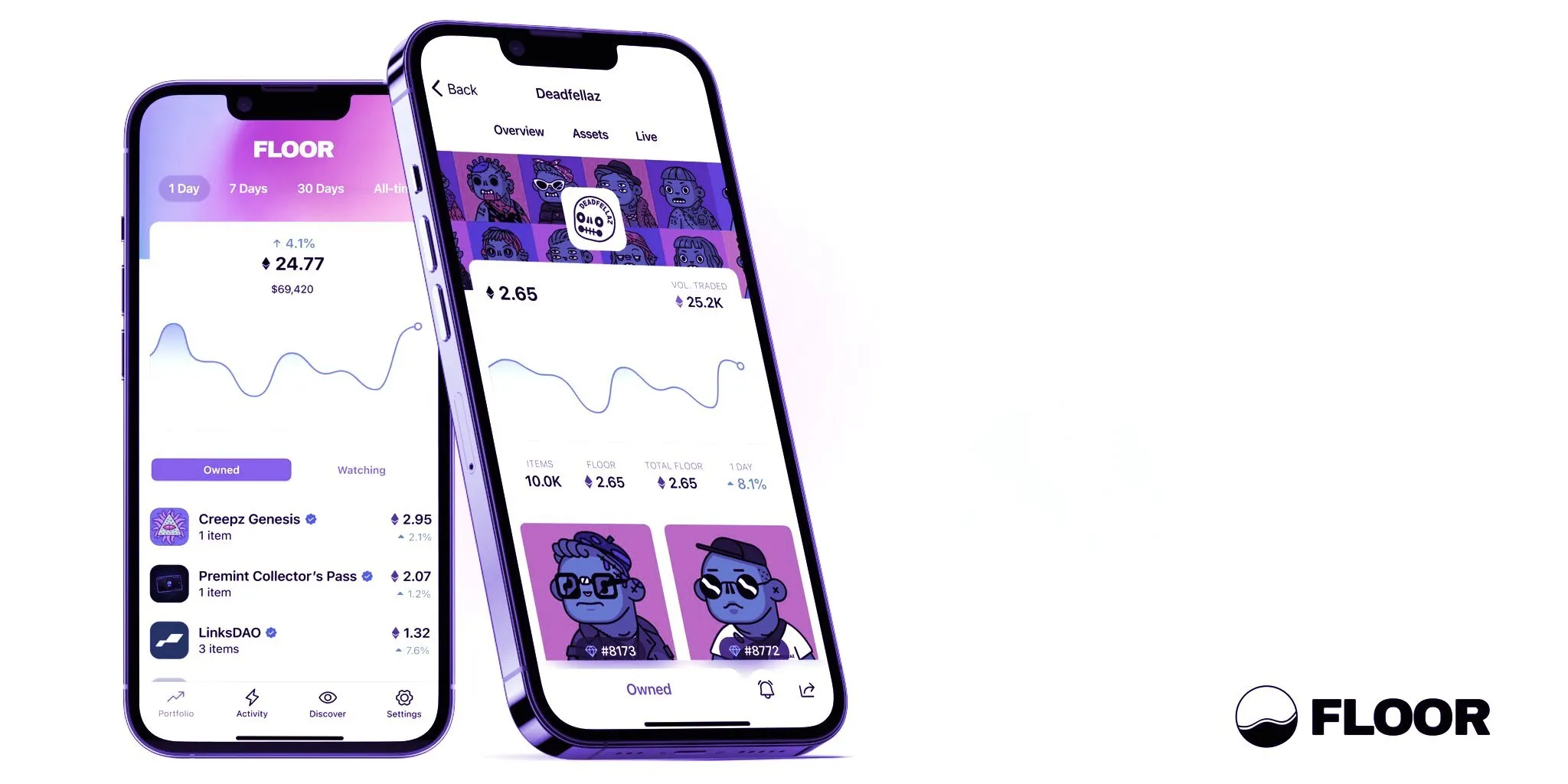Christine Brown was Robinhood Crypto's first COO and the face of its crypto business until she left at the end of March. At the time, she would only say she was "starting a crypto venture."
Today, Brown revealed where she has landed: Floor, a token-gated NFT portfolio tracking platform that is announcing an $8 million seed round led by 6th Man Ventures along with B Capital, Collab+Currency, Crypto.com, and others.
Floor has been around since last October when it minted its Generation I membership NFTs, but today looks like the company's coming-out party.
Brown joins as COO with CEO Chris Maddern and CTO Sid Dabral, the co-founders of e-commerce firm Button. Maddern is also the former head of mobile at Venmo.
Brown, in an interview with Decrypt, touts Floor as a way to solve the "nightmare scenario" of trying to check the price movement of your NFTs over time on leading marketplaces like OpenSea.
"You have to open up a tab on a marketplace to understand how it's doing long term," she says. "The second that you start doing this for more than one at a time, and let's say you're investing across multiple entities and multiple collections, it becomes impossible to wrangle and to actually understand what is happening. So my co-founder Chris Maddern... launched an app last year that does it and does it beautifully. You open up the app, enter your wallet address, and you can see your portfolio of NFTs, their value over time, what's happening in that collection, and you get interesting and really unique insights into the data around it. And it just makes you a smarter, more connected human with the tokens that you're purchasing. We're seeing users open this app multiple times a day and telling us it's like the first thing when they roll out of bed, they want to see what's going on."
Floor's mobile app is currently completely token-gated, meaning that only Floor NFT holders can access it. The Floor NFTs grant access to the app and the user's community, where new features are discussed.
With the $8 million in funding, Floor, according to a blog post, aims to "quickly grow the product beyond just a token-gated community and build new value for token holders, while opening parts of the Floor platform for everyone and moving towards our mission of making NFTs more accessible & understandable for all."
The @floornfts beta is such a genius application of web3 paradigms that it should be the standard for early access programs.
web2 = add your email to a list to use a product
web3 = mint an NFT to use the product, join the community, & access premium features / early minting
— Aaron Batchelder | abatch.eth (✌️,👽) (@AaronBatcheldr) December 14, 2021
For its branding and UX, Brown says one crypto tool the Floor team admires is Rainbow wallet.
"It's super delightful. When I onboard new people into self-custody, that's usually what I'm showing them. It just has a very beautiful UI," she said. "And UI and user experience is central to helping people navigate this space. The early issues that I had with getting involved in Bitcoin or crypto was that it was super technical, it was for engineers, by engineers."
Fierce competition among NFT platforms
Floor is entering an extremely crowded space.
Beyond the NFT marketplace race (led by OpenSea but with Rarible, Foundation, Zora, Nifty Gateway, and scores of others jockeying for position), there are also multiple platforms that, like Floor, offer clear and easy-to-use viewing of your entire NFT collection: Mark Cuban's Lazy.com; Showtime; Oncyber; Spatial; and Mynt, to name just a few.
"Marketplaces are becoming more fragmented," Brown says when asked about the competition. "All of these use cases, chains, marketplaces, creating fragmentation, make it harder for users today to understand their NFTs. I think that's where Floor has this piece of magic, which is it's a single view across all of that. And that's critical for larger audiences finding it intuitive and accessible. So when people say, 'There's a lot going on in this space, does that mean that there's this tiny piece of pie that's getting whittled further and further down?' I say, 'Actually, as the pie gets cut up, understanding which piece of the pie is yours, and how you want to engage with it, and where its home is, is the opportunity that Floor is leading into that we didn't see served in the space so far.'"

